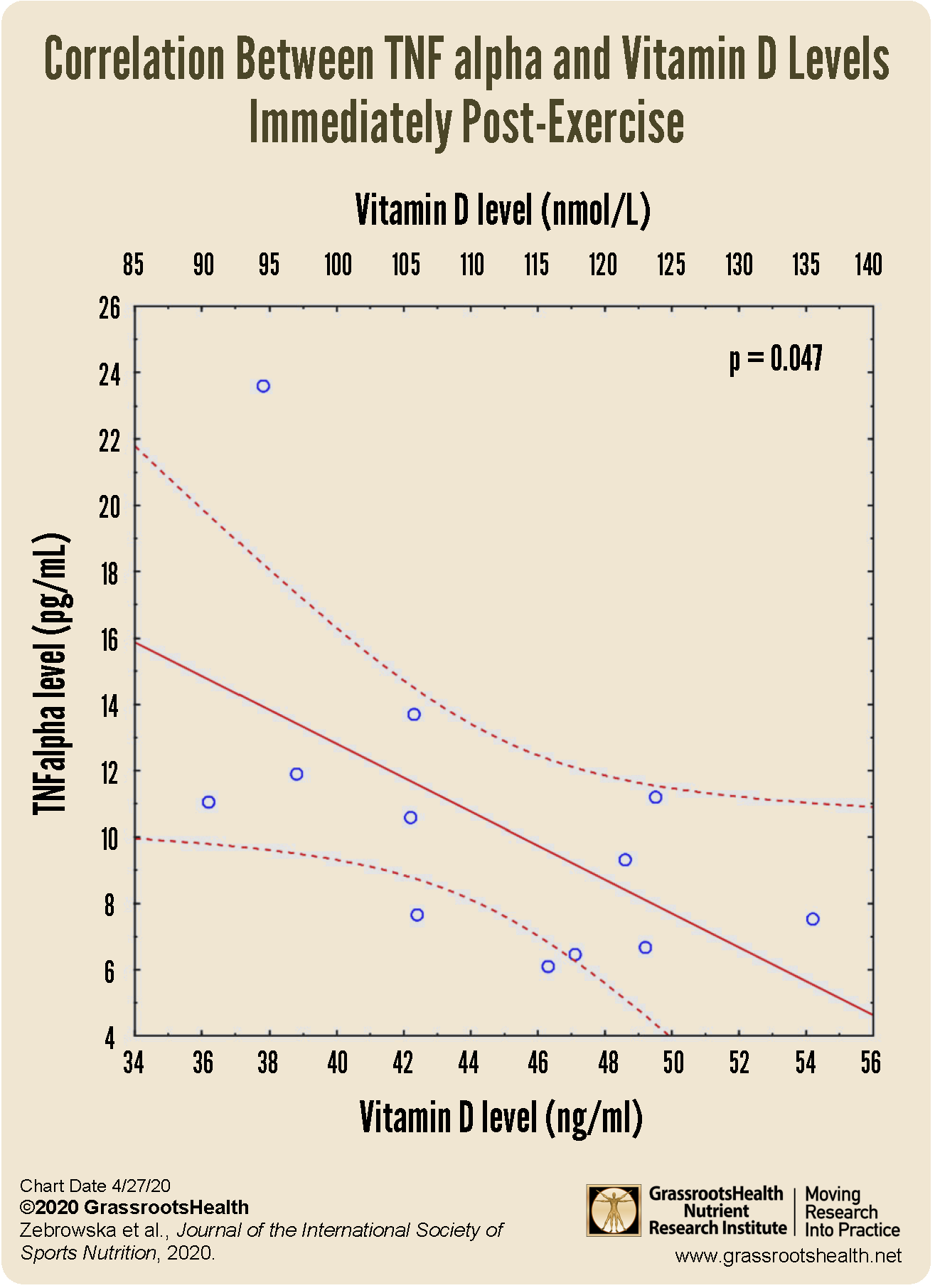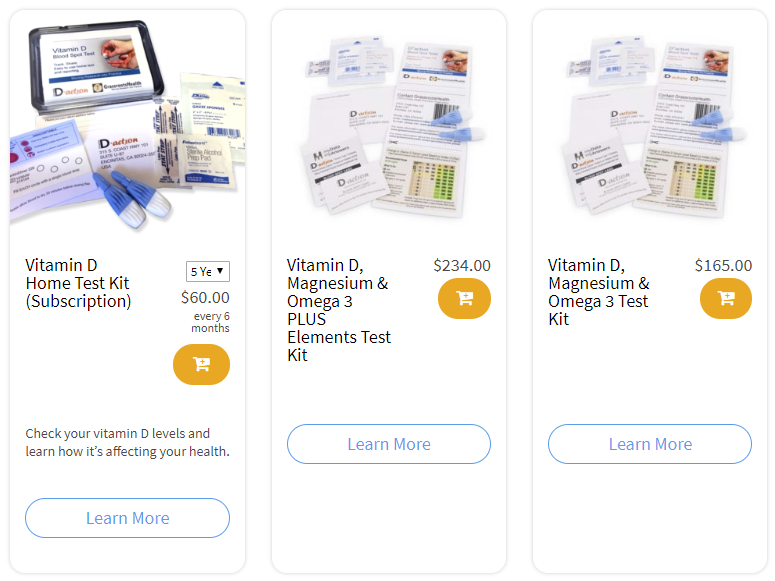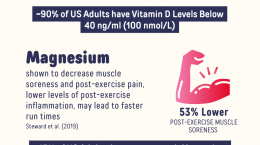Published on April 29, 2020
At GrassrootsHealth, we are well aware of the many different nutrients the body relies on for health and wellness. Specific to the athlete, we have covered posts that illustrate the importance of nutrients such as vitamin D for optimal sports performance, magnesium for post-exercise muscle pain, and omega-3 fatty acids for post-exercise muscle recovery. Today’s post will focus on the additional benefit of vitamin D for muscle health and recovery after strenuous exercise.
Why is vitamin D important for athletes?
 Vitamin D deficiency is common in athletes. It is involved in rebuilding skeletal muscle tissue, maintaining bone health, and reducing inflammation after high impact exercise. Therefore, athletes may benefit from supplementing with vitamin D to raise their vitamin D levels to both help prevent deficiency and promote quicker recovery from exercise.
Vitamin D deficiency is common in athletes. It is involved in rebuilding skeletal muscle tissue, maintaining bone health, and reducing inflammation after high impact exercise. Therefore, athletes may benefit from supplementing with vitamin D to raise their vitamin D levels to both help prevent deficiency and promote quicker recovery from exercise.
Findings from a recent study
Recent findings by Zebrowska et al. (2020) support the role of vitamin D in skeletal muscle recovery after high impact exercise. The study measured the effect of supplementing with either 2,000 IU vitamin D or placebo for 3 weeks in male ultramarathon runners (n=24) with average vitamin D levels starting above 30 ng/ml. Runners were also put on a mixed diet before the intervention that consisted of approximately 8 mcg/day (320 IU/day) of vitamin D. The study took place during February to March so there was minimal variability in sunlight exposure. Both before and after the intervention, runners were asked to participate in a 30-minute downhill running test at 70% intensity. Serum biomarkers were collected immediately after as well as 1 and 24 hours after the test to determine if vitamin D supplementation had an impact on skeletal muscle recovery.
What were the effects of supplementing with vitamin D?
The group that received 2,000 IU vitamin D had significantly higher serum vitamin D levels both before and after the 30-minute exercise period compared to controls (40.3 ng/ml versus 31.8 ng/ml, post-intervention, at rest levels; p < 0.05). The vitamin D group also had significantly lower levels of the following biomarkers after 1-hour recovery period compared to pre-intervention measures:
- Troponin (a group of proteins that regulate cardiac and skeletal muscle contraction), p = 0.03
- Myoglobin (carries and stores oxygen in muscle cells), p = 0.01
- TNF-alpha (a pro-inflammatory molecule), p < 0.03
The vitamin D group saw a significant moderate decrease in TNF-alpha after the intervention compared to pre-intervention for all post-exercise time points measured (there was no significant change in the placebo group at any time point). There was also a significant negative correlation between vitamin D status and TNF-alpha immediately after exercise, as shown in the chart below.
Furthermore, after 24 hours there was significantly lower creatine kinase activity (biomarker indicating muscle damage) in the vitamin D supplemented group compared to placebo, and a significant negative correlation between serum vitamin D status and myoglobin (p = 0.05). These results combined suggest a beneficial role for vitamin D in improving post-exercise recovery in high intensity endurance exercise.
Could You Need More Vitamin D?
Not only is vitamin D beneficial for exercise recovery, it’s also essential to immune health. We’re in a time of great crisis that could be greatly affected by making sure you and everyone you know has a serum level of at least 40 ng/ml. Help us help you.
GrassrootsHealth is prepared to move forward by using science to drive global action, with using either clinical trials with our key researchers or by doing community Field Trials with individuals or other organizations. Please let us know if you are interested and how we can quickly setup your projects.
Do you know what your vitamin D level is? Be sure to test today to find out, and take steps to keep it within a target of 40-60 ng/ml or 100-150 nmol/L! Give your immune system the nutrients it needs to support a healthy you and protect yourself from unnecessary diseases. Through GrassrootsHealth Nutrient Research Institute, you can also test your essential elements magnesium, copper, zinc and selenium, toxins such as lead, mercury and cadmium, as well as your omega-3 levels, inflammation levels and thyroid stimulating hormone (TSH) level. Find out your levels today! Log on to the test selection page (click the link below) to get your tests and see for yourself if your levels can be improved.
Make sure you track your results before and after, about every 6 months!
Click Here to Access the Test Page
How can I track my nutrient intake and levels over time?
To help you track your supplement use and nutrient levels, GrassrootsHealth has created the Personal Health Nutrient Decision System called
For each specific supplement, you can track what days you take it, how much, and many other details. This will help you know your true supplemental intake and what patterns of use work for you to reach and maintain optimum nutrient levels. Check it out today!









